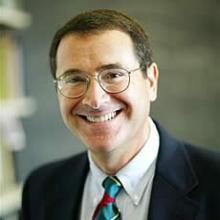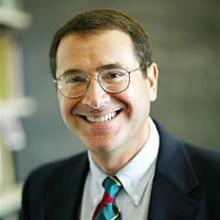Degas’ Doubt
Paul Valéry met Edgar Degas in 1896, and the two were friends for the two decades that remained in Degas’ life – the poet, almost 30 years younger, was in awe of the older painter, whom he considered a genius, and the painter was clearly flattered by the interest of the brilliant young poet. Valéry early had the idea of writing a book about Degas, but Degas was too cantankerous to agree to the project. In the event it was not until 20 years after Degas’ death that Valéry published his reflections and recollections in a small book he titled Degas Dance Dessin. Now, on the hundredth anniversary of Degas’ death the Musee D'Orsay honors the painter with an exhibition of his art seen through the lens of his relationship with Valéry, and the themes of the poet's book.
Degas made common cause with the core group of Impressionists – Monet, Pissarro, Renoir, Sisley – because he shared their visual approach to painting, concerned not with ideas or symbols, but with truthful representation of how things looked. Unlike the core Impressionists, Degas’ subject was the human figure: he studied people the way Monet, Pissarro and Sisley studied the landscape. And because of that difference, his obsession was not with light, but with form.

Edgar Degas, "Study of a Dancer", ca 1890. Image courtesy of The Montreal Museum of Fine Arts.
Valéry’s memories of Degas created a detailed portrait of an archetypally experimental painter, with all the attitudes and attributes of the species. Thus Valéry was
convinced that [Degas] felt a work could never be called finished, and that he could not conceive how an artist could look at one of his pictures after a time and not feel the need to retouch it. He would sometimes get possession of a canvas that had long been hanging in a friend's home, and take it back to his den, whence it would rarely emerge. It reached a point where those who knew what he was like would hide anything of his that they possessed.
The poet compared the painter to
a writer striving to attain the utmost precision of form, drafting and re-drafting, canceling, advancing by endless recapitulation, never admitting that his work has reached its final stage: from sheet to sheet, copy to copy, he continually revises his drawing, deepening, tightening, closing it up.

Edgar Degas, "Seated Dancer With Hand on Her Ankle", ca 1879. Image courtesy of The Ordrupgaard Museum, Denmark.
Degas was always uncertain:
he would take a certain pleasure in repeating what a critic had said about him in a review of an exhibition: “Continually uncertain about proportions.” Nothing, he claimed, could better describe his state of mind while he was toiling and struggling over a work.
Valéry was not a student of painting in general, yet he nonetheless realized that not all painters were like Degas, and in one passage he captured a key difference between conceptual and experimental artists:
For any given artist, what does his work signify?... A means, or an end?... According to their natures, some will pass easily from one work to another, tear up or sell, and go on to something quite different; others, on the contrary, become obsessed, involved in endless revision, cannot give up the game, turn their backs on their gains and losses; like gamblers, they keep doubling the stakes of patience and determination.
Two decades after Degas’ death, in 1939, Valéry looked back with nostalgia to the artistic values his friend had represented, that were now lost:
In literature as in the arts, there is a general hurry to publish or exhibit what one has been doing…Our age is very severe on any of the qualities that call for time…Purely exploratory labor without hope of immediate reward, prolonged and retired self-preparation, the will to submit to irksome or apparently unnecessary constraints, have all become impossible or more than we can bear.
Valéry thus recognized the conceptual bias of 20th century art, and noted a shift in artistic values:
We have developed a curious habit of supposing that any artist who fails to begin by shocking, by being sufficiently laughed at and insulted, must be third-rate…Whence the necessity of shocking becomes a sacred task. A sound study of modern art, over the past half or three-quarters of a century, would have to expose the fresh solutions that have been devised every five years to the problem of shock tactics.
His judgment was poignant, for a lost art world:
To put it briefly, the word knowledge once had a meaning in the arts, and it no longer does.

















